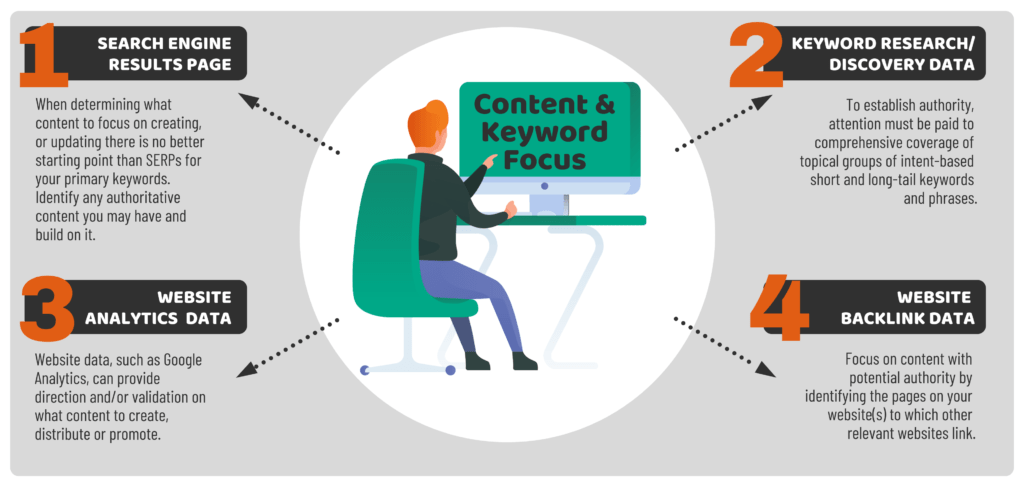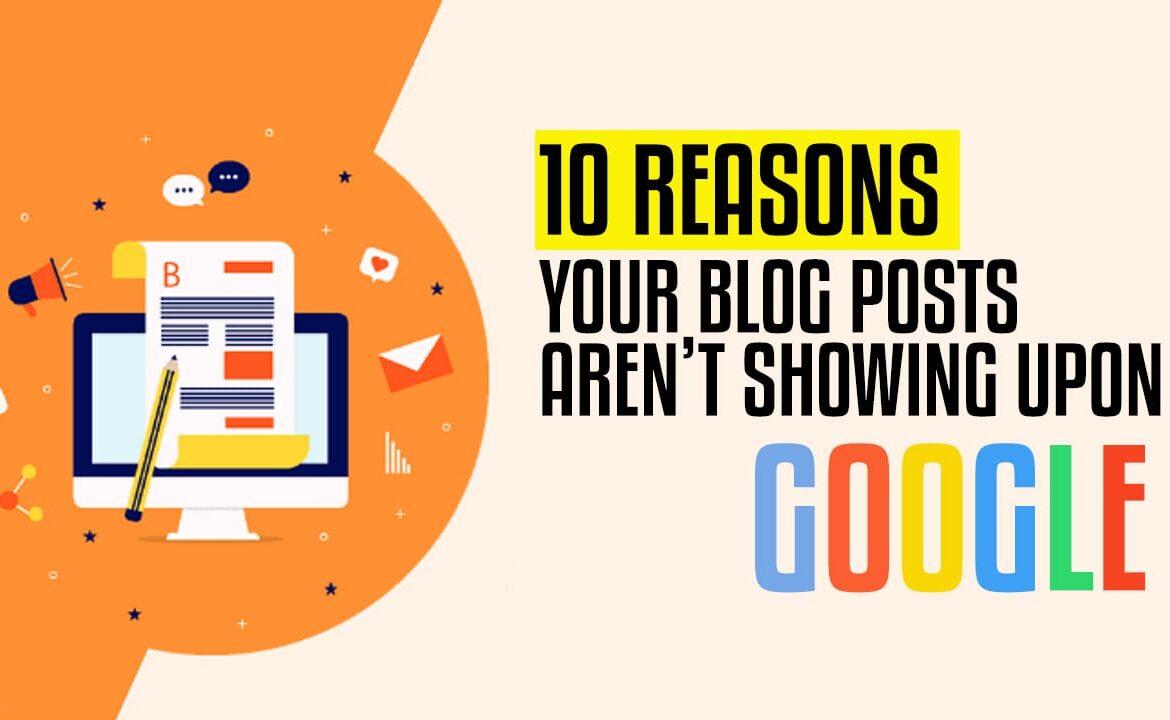Reasons Your Blog Posts Not Showing Up on Google: and What to Do About It
If you’re like most bloggers, you probably put a lot of time and effort into creating your blog posts. You come up with catchy headlines, craft valuable content, and do your best to optimize your posts for the search engines. But even after all that hard work, sometimes your blog posts not showing up on Google. Why is that? And more importantly, what can you do about it? In this blog post, we’ll explore 10 reasons why your blog posts not showing up on Google – and how to fix them!
Jasper.ai is one of the most skilled ai content writers when it comes to writing blog articles in an original style. As a result, you may get your blog to appear on the top page.
Try a free trial on Jasper.ai blog writer for better content that rank your blog on the first page.
Try jasper.ai boss mode and jasper.ai mastermind course to create unique content 5x faster.

Why Is Search Ranking Important?
The majority of people do not scroll past the first page of search results. According to this research, Google’s organic search results list receives 33% of the traffic, compared to 18% for second place and traffic only decreases from there. So your site must be indexed by Google, Bing, and Yahoo in order for it to be effective.
Reasons Your Blog Posts Not Showing Up On Google
If you’re having trouble getting your blog posts to show up on Google, there could be a number of reasons why.
Your website has not yet been indexed by Google.
One reason your blog posts not showing up on Google. In order for your blog post to show up in search results, it must be crawled and indexed by Google. You can check if your blog post is indexed by using the site: operator in Google Search.
If your blog post isn’t indexed, you can submit it to Google for indexing. To do this, use the Submit URL tool in Google Search Console.
Another reason your blog posts not showing up on Google is that they’re not ranking high enough in search results. In order to rank higher, you’ll need to improve your website’s SEO.
If you’re still having trouble getting you it hasn’t been indexed yet. This can happen if you’ve just published the post, or if you made changes to an existing post and didn’t resubmit it to Google for indexing. You can check whether your page has been indexed by doing a site search on Google (site:example.com). If the page doesn’t show up, it means it hasn’t been indexed.
If the page does show up in the search results but isn’t appearing as high as you’d like, that’s a different issue altogether.
By publishing engaging content, bloggers can have their sites show up in search results with Jasper.ai’s help.
Try a free trial on Jasper.ai blog writer. Try a Jasper.ai blog writer boss mode.
Try a free trial on the Jasper.ai blog writer Mastermind Course.

Your website is still relatively new.
Did you just launch your new website? It might take four weeks for your new business website to appear in search engine results. Although we are used to getting things online quickly, search engine indexes may be glacial. So wait a little longer, learn more about search engine algorithms, and don’t be too anxious.
Your website is infested with spammy content.
Another reason your blog posts not showing up on Google is Spam articles, such as those with low-quality spun content, spammy keywords, cloaked links or spammy redirects, and pages with a lot of advertising layers; there are several kinds of spam or at the very least such little value that they don’t find it worth their time to include them in their index. Duplicate content is similar: just… do not. Instead, learn current SEO, blogging, and marketing tactics — reading other pieces on this website might help! – and produce outstanding work.
Your website isn’t optimized for search engine crawling.
When you submit your website to a search engine, a spider is sent to crawl it for content. These spiders don’t regard your site as a visitor would. They scan your site for meta information, keyword saturation, relevant material, and other criteria. As a result, you must think about what content search engines are actually seeing on your Web pages. This is another reason that your blog posts not showing up on Google.

Refreshing Your Local Cache
The most basic possible issue, albeit a rare cause of this problem, is that your own website’s local cached version does not include the new article. You go to your homepage but because your cache hasn’t expired, your browser doesn’t check to see if the page has updated. Your new post is accessible, but you can’t see it.
The solution to why your blog posts not showing up on Google is as easy as the issue is uncommon. Simply refresh the page to refresh the cache. This might be accomplished with a single F5 keystroke on certain browsers, or by ctrl+F5 or shift+F5. In most cases, however, this won’t be an issue; modern caches are capable of detecting incremental changes.
Your keyword is very competitive
Make sure you’re focusing on a less competitive keyword market so that your customer can notice you. A search engine, for example, helps millions of people all over the world navigate the web and obtain relevant material from among the billions of websites. Make sure you’re targeting a less competitive keyword market so that your consumer pays attention to you. Another main reason for your blog posts not showing up on google.
Your website has been deleted from Google.
If Google believes it is required to do so by law or other reasons, such as if the sites violate Google’s quality standards or detract from users’ ability to discover relevant information, it may remove websites from its index and search results.
Your site has been fined for taking too long to respond to a manual action.
The Google Search Console offers a manual actions report. Penalties for breaking the rules in one form or another are referred to as manual actions. User-generated spam, a free host, unnatural links, thin content, cloaking, keyword stuffing, and other spam signals are examples of this. Examine the report; it will reveal if your site has any, which pages have them, and how to repair the problems.
Not all keywords are created equal.
It’s simple to rank for irrelevant search terms. It’s tough to get into the top spot for lucrative keywords. The problem is twofold: first, determining the most profitable keyword for your company, and second, having the knowledge to get you there.

Your Website Takes a Very Long Time to Load
There are a variety of reasons why your site may be indexed but not ranked. That’s why half the post is dedicated to it! They all relate to SEO’s fundamental concepts, so let’s get started.
The first issue to look at is site speed. Long loading times were typical when broadband connections were slow and mobile internet was low-quality, but we’re way beyond that now. People will leave a website if it doesn’t completely load in two seconds or less nowadays. If it takes four or five seconds for the page to load, over two-thirds of your visitors will bounce. Your site may as well not exist if it takes any longer.
Factors That Determine How High Your Blog Post Will Rank
– The title and metadata of your post
– The number of links to your post
– The quality of the websites linking to you
– The age of your post
– Your website’s overall SEO health

There are a lot of things you can do to improve your blog post’s ranking, but it’s important to remember that these things take time. You won’t see results overnight – it takes weeks or even months for Google to start ranking your site higher. But if you’re patient and continue working on your SEO, you will eventually see results.
So those are reasons why your blog posts might not be ranking in Google search results. If any of these reasons apply to you, don’t worry – there are steps you can take to fix the issue. Just remember to be patient – SEO takes time, but it’s worth it in the end.
Not all hope is lost if your blog post isn’t appearing on Google.
How We Can Do To Try And Fix The Situation
1. Check your site’s crawl status in Google Search Console.
If your site’s crawl status is “Not indexed,” it means that Google hasn’t crawled your site recently, and your blog posts may not be appearing in search results. To fix this, submit your site to Google Search Console, and make sure you’re following the best practices for SEO.
2. Perform a keyword analysis.
When you’re writing your blog posts, make sure you’re targeting keywords that have high search volumes and low competition. You can use a tool like Semrush or Moz to find the right keywords for your blog.
3. Optimize your titles and meta descriptions.
Make sure your blog post titles are catchy and include your target keyword. And, in your meta descriptions, be sure to include a call to action that will encourage people to click through to your blog post.
By following these tips, you can ensure that your blog posts are more likely to show up in Google search results. Just remember that it takes time for Google to index new content, so be patient and keep producing quality content!
To start, check when the last time your website was crawled by Googlebot via Google Search Console > Crawl > Fetch as Google. If it’s been more than a week since your site was last crawled, resubmit your sitemap in order to request that Google recrawls your site sooner rather than later. If this doesn’t work, try requesting a manual review through the same tool.
If your blog post is appearing in Google search results but not as high up as you’d like it to be, there are a number of things you can do to try and improve its ranking.
One final thing to keep in mind is that sometimes, it takes Google a while to catch up with new content. So if you’ve only recently published a new blog post, give it some time before panicking – it might just take a little while for Google to index and rank it.


3 thoughts on “Reasons Your Blog Posts Not Showing Up on Google: and What to Do About It”